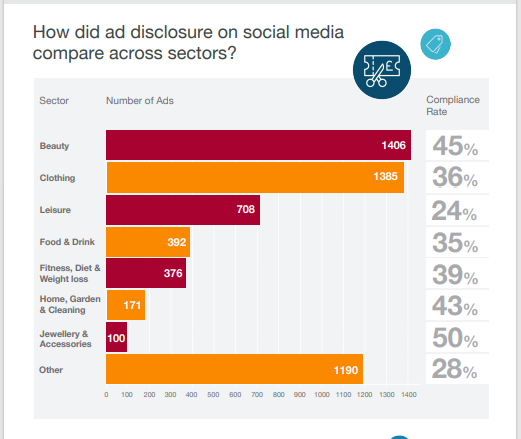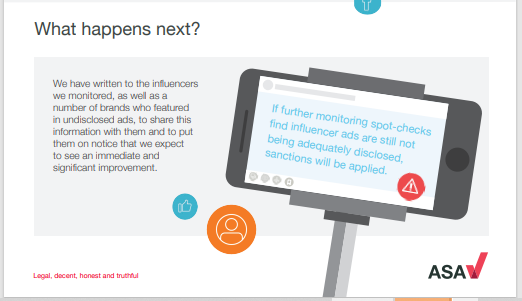ASA report reveals influencers failing to disclose Instagram Stories
- rupahashtag
- Mar 18, 2021
- 3 min read
An ASA/CAP report out today details the low levels of disclosure across multiple industries by influencers on Instagram.
The monitoring exercise by the ASA's sister body, CAP, reports:
⚠️ 122 influencers monitored (including ex Love Island contestants)
⚠️ 24,000 Stories assessed by CAP
⚠️ 24% of which were ads
⚠️ only 35% of ads were labelled correctly
That's a compliance rate of approximately 1 in 3 ads. Nowhere near what the ASA would have hoped to have seen, particularly considering the work CAP has undertaken to provide clear and simple guidance to influencers and brands on how to disclose.
The monitoring exercise was conducted in September 2020 and CAP reports that it has written to the non-compliant influencers, as well as a number of brands who featured in undisclosed ads, to share this information with them and to put them on notice that they expect to see an immediate and significant improvement.
If not, CAP says it will apply sanctions.
What sanctions can CAP impose on influencers & brands?
Unlike the CMA (Competitions & Markets Authority) CAP cannot impose financial penalties or haul influencers and brands through the civil or criminal court system.
CAP prefers to work with publishers, both online and offline, to secure compliance and prevent further breaches of the Code.
We are yet to see any stringent penalties by CAP against influencers but the first stage of penalties could be placement on CAP's non-compliant webpage. That doesn't sound particularly terrifying but this page is optimised (with a little help from Google) to ensure that the listings rank as high as possible, often above the brand/influencers own pages. The purpose is, therefore, for consumers running a search to land on this page instead of the brand or influencer's site. The aim is to warn consumers that there has been a Code breach and to generate sufficient negative publicity to encourage the brand or influencer to swiftly change their non-compliant approach to advertising.
Having worked in CAP's Compliance team, I can testify that this approach does work. At least against brands who value their reputation and do not want the negative publicity ongoing ASA & CAP attention brings them. Not so useful against brands that court controversy.
Is there anything else that CAP can do? CAP can work with platforms such as Facebook to have non-compliant ads removed. It's a tried and tested method for digital ads but not for influencer marketing. But if the platform was willing to cooperate with CAP, the potential for significant action is limitless. We know already that most platforms e.g. Instagram/Facebook make compliant ad disclosure integral to their terms of use so the chances are that if they've breached the CAP Code on disclosure, they've probably breached the platform's own rules too - and the platforms say that that can ultimately lead to account suspension or removal. And THAT would be a game-changer for influencers who are so reliant on their social media platforms.
It's also possible that CAP could refer non-compliant brands and influencers to Trading Standards for breaching the Consumer Protection Regulations. Like the CMA they can pursue companies through the courts so this could be one route to a fine (or potentially imprisonment, but that's unlikely just for non-disclosure).
How can brands & influencer avoid CAP sanctions?
This monitoring exercise focused on Instagram Stories (and some IGTV, Reels and feed posts). But the rules for disclosure apply to all types of posts across all platforms so it's important to ensure your branded content is clearly disclosed.
You need to familiarise yourself with CAP rules and guidance on disclosure, available on the ASA website and to ensure you understand what each individual platform requires from you e.g. they may expect you to use a particular paid partnership tool and tag the brand in every sponsored post.
You should also ensure you have a compliance strategy. What does that mean in practice? It means that if you do make an error, you can correct it quickly and apply the changes across all associated posts.
To do that, you need to know the rules and be confident that you can apply them. To discuss compliance training for yourself or your brand or agency, contact Rupa at Hashtag Ad Consulting.











Comments